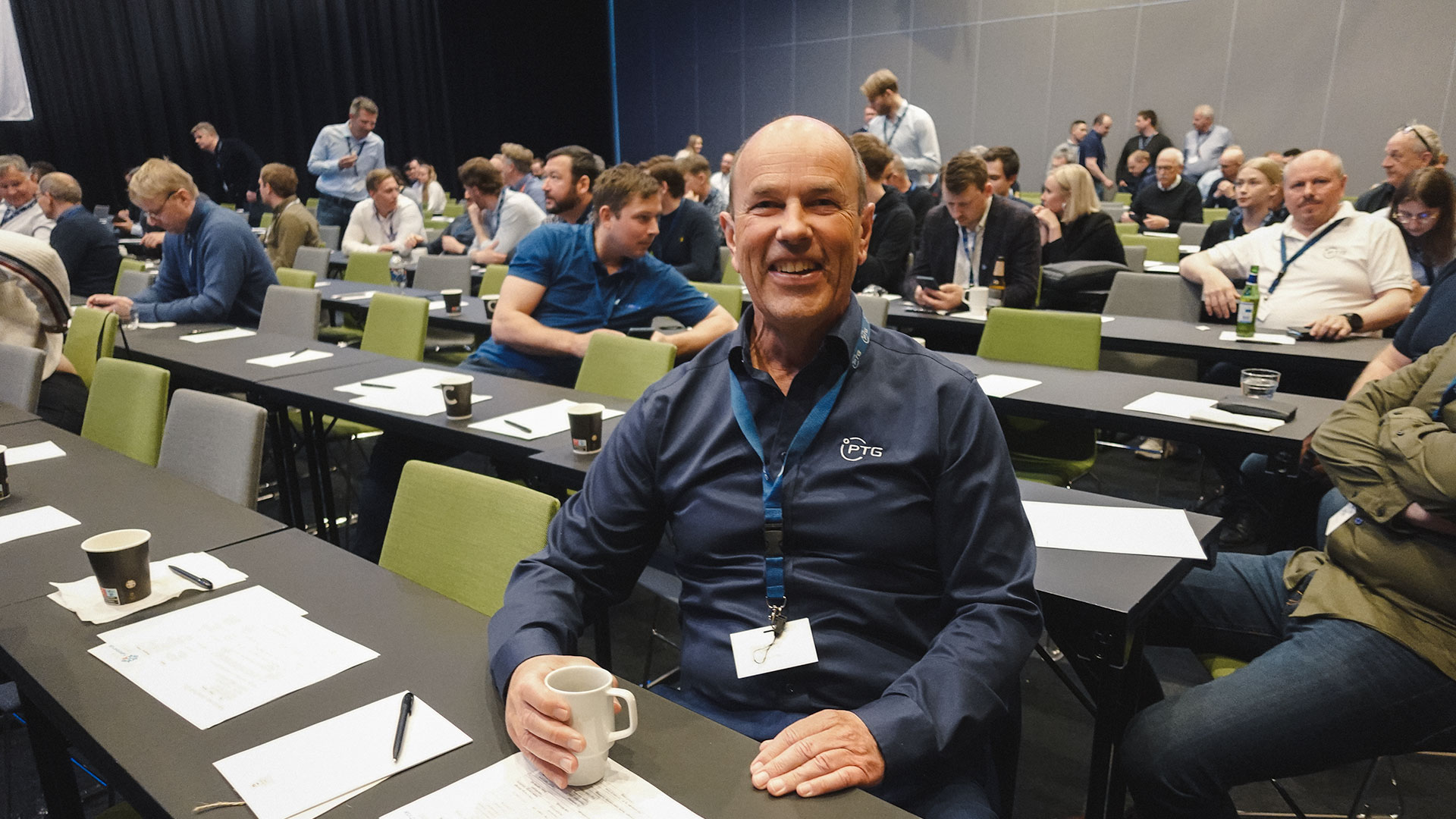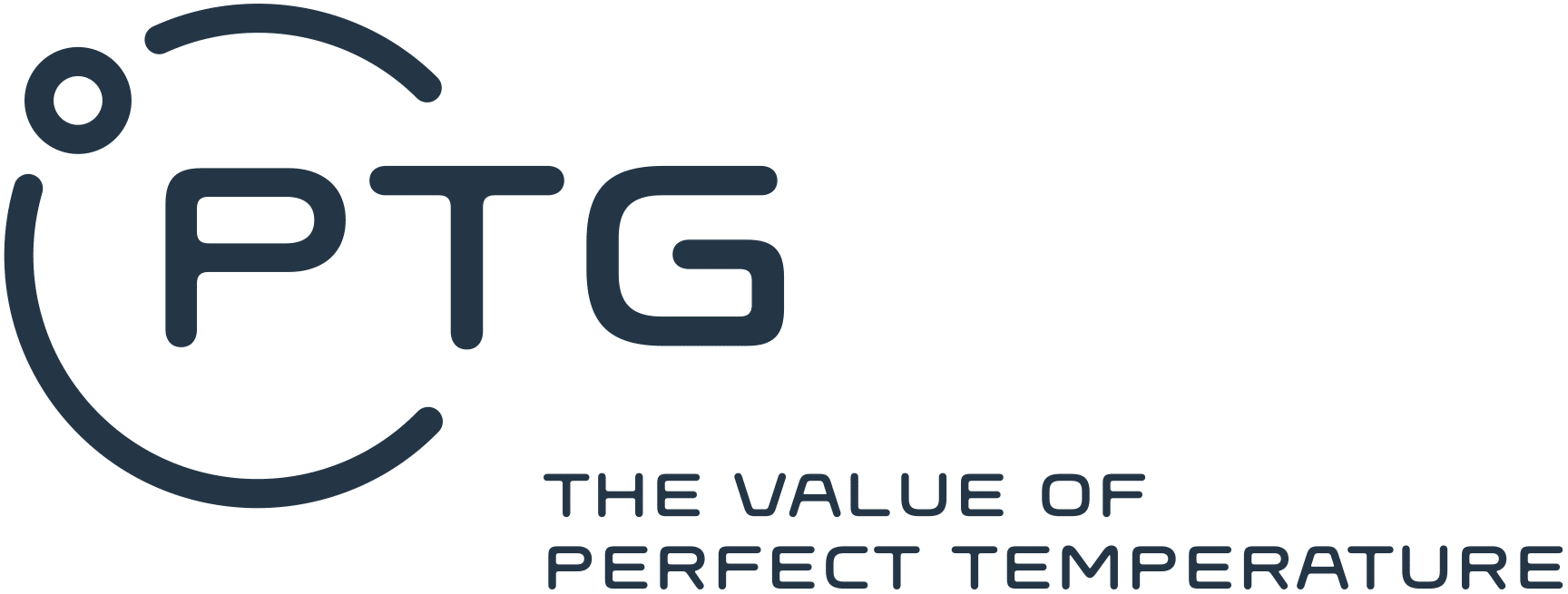PTG has a very conscious attitude to its own business, CEO Terje Arnesen told the Norwegian Society of Refrigeration in Tromsø earlier this year. “We’ll be committed to Norway and we’ll also ensure we educate our own people – not only up to qualifying as a refrigeration technician but also if they’re ready for a career which will develop them further. So we’re now establishing our own internal school.”
This is an edited translation of an article originally written for the Kulde og varmepumper trade journal by editor Jørn Wad.
During the annual refrigeration conference in Tromsø, PTG attracted attention from the rest of the industry. The company is currently pursuing a relatively aggressive growth policy, including through acquisitions. However, it is pursuing a long-term and carefully considered strategy throughout.
Arnesen, whose background includes working in the oil and offshore business, believes the refrigeration sector has a lot to learn from that business.
Norwegian production
“We’re going to produce our equipment in Norway,” he emphasises. “That’s been our policy since before Covid-19 and the war in Ukraine, and it’s not exactly been weakened by what we see now.
“I believe it’s important for us as a company, for the industry and not least for our customers that we’re confident of being able to deliver solid quality – and that this is produced in Norway.
“That gives us a number of benefits which aren’t otherwise so easy to obtain. When you opt to manufacture elsewhere, you must be very aware that you’re losing expertise. You quite simply can’t access that knowledge if you’re not producing your equipment at home.”
Asked why such loss of expertise is so damaging, Arnesen explains that this is first a matter of straightforward knowledge about production techniques – the hands-on familiarity needed to develop as a company.
“Demands for innovation are hardly going to diminish in coming years, which makes it important that we build the basic knowledge about what we manufacture here.
“In addition, you get extra benefits from being able to develop an interaction between production, engineers, customer service and the refrigeration technicians. That’s because all this belongs together when the goal is to grow as a company and not least to create jobs.”
Increased expertise
Arnesen dismisses assertions that production in Norway is incredibly expensive as a persistent myth, which is precisely that – a myth. “People seize on the high hourly pay rates here, and form the view that it’s impossible to manufacture at prices acceptable to the market.
“Nothing could be more wrong. The position is actually that a great deal of the equipment we need can be produced with the aid of robots. And these, of course, cost the same whether you’re in Korea, China or Norway.
“It then comes down to a question of how you can exploit closeness to the actual production, and not least the possession of expertise I’ve already mentioned – which you acquire by developing and producing here.”
He notes that the oil and offshore industry has demonstrated that Norway can develop world-class expertise and products as long as people are willing to make conscious commitments.
“Frank Mohn in Bergen, of course, is among those who’ve demonstrated that it’s perfectly possible to make a commitment to Norway and nevertheless do very well. I’m actually pretty certain that this a winner strategy.”
But Arnesen admits that, while the cost of labour is one thing, actually getting hold of personnel is another – and a problem PTG takes seriously for both production units and recruitment.
“We’ve now become a company with about 200 employees spread over large parts of Norway, although the centre of gravity for our operations is in the northern areas of the kingdom. As I see it, that means we have an extra responsibility.
“We accept this responsibility, and therefore apply a self-imposed rule that apprentices will make up at least 10 per cent of our workforce at all times. That’s a formidable goal, but we’re well on our way to achieving it.
“Right now we actually have 18 apprentices on two-year programmes and, as far as I recall, 11 contracts with youngster who are ready and waiting to start their training with us.”
Own school
Asked why he thinks so few companies are making such an active commitment to apprentices, Arnesen says a number of reasons undoubtedly exist and that these perhaps differ from one company to another.
“To some extent, it’s a matter of having a critical size which gives you the capacity and resources to provide a good training. But I think part of the reason is that people haven’t really sat down and thought this through. Because the moment you do that, you see a number of fairly obvious truths ¬– which have prompted us to go so far that we’re actually starting our own school.”
He observes that the position for the industry is that it has pretty promising prospects, but a level of recruitment which gives every reason for concern.
“We’re experiencing a substantial need to increase seafood production in Norway with a low climate footprint, but labour and expertise are limiting factors. Nobody’s going to solve this for us, we’ve got to do it ourselves.
“So the fact that it’s practically impossible to attract expertise from outside has prompted us to think. Both for our own part and not least for the individual employee, we’ve got to establish an internal solution for those who want to continue to make progress.”
Arnesen says the company will have an offer and a career opportunity for all, whether they want to become a service technician, a foreman, a project manager, a product developer, a salesperson, a department manager or whatever.
“We’ll probably then be able to keep many more people in the company, and will moreover be building up a broader and more firmly founded expertise. Doing this from inside means we can ensure that we’ve got experts at every level.
“Since we also handle manufacturing, we can create solutions for our customers which very few others can match. We can offer production which builds communities while simultaneously delivering profitability for our owners, and which means sound and secure jobs for the workforce. I think that’ll remain important in the future.”

“We’re experiencing a substantial need to increase seafood production in Norway with a low climate footprint, but labour and expertise are limiting factors. Nobody’s going to solve this for us, we’ve got to do it ourselves.” PTG CEO Terje Arnesen at the Norwegian Society of Refrigeration in Tromsø earlier this year.
Own school
Asked why he thinks so few companies are making such an active commitment to apprentices, Arnesen says a number of reasons undoubtedly exist and that these perhaps differ from one company to another.
“To some extent, it’s a matter of having a critical size which gives you the capacity and resources to provide a good training. But I think part of the reason is that people haven’t really sat down and thought this through. Because the moment you do that, you see a number of fairly obvious truths ¬– which have prompted us to go so far that we’re actually starting our own school.”
He observes that the position for the industry is that it has pretty promising prospects, but a level of recruitment which gives every reason for concern.
“We’re experiencing a substantial need to increase seafood production in Norway with a low climate footprint, but labour and expertise are limiting factors. Nobody’s going to solve this for us, we’ve got to do it ourselves.
“So the fact that it’s practically impossible to attract expertise from outside has prompted us to think. Both for our own part and not least for the individual employee, we’ve got to establish an internal solution for those who want to continue to make progress.”
Arnesen says the company will have an offer and a career opportunity for all, whether they want to become a service technician, a foreman, a project manager, a product developer, a salesperson, a department manager or whatever.
“We’ll probably then be able to keep many more people in the company, and will moreover be building up a broader and more firmly founded expertise. Doing this from inside means we can ensure that we’ve got experts at every level.
“Since we also handle manufacturing, we can create solutions for our customers which very few others can match. We can offer production which builds communities while simultaneously delivering profitability for our owners, and which means sound and secure jobs for the workforce. I think that’ll remain important in the future.”

